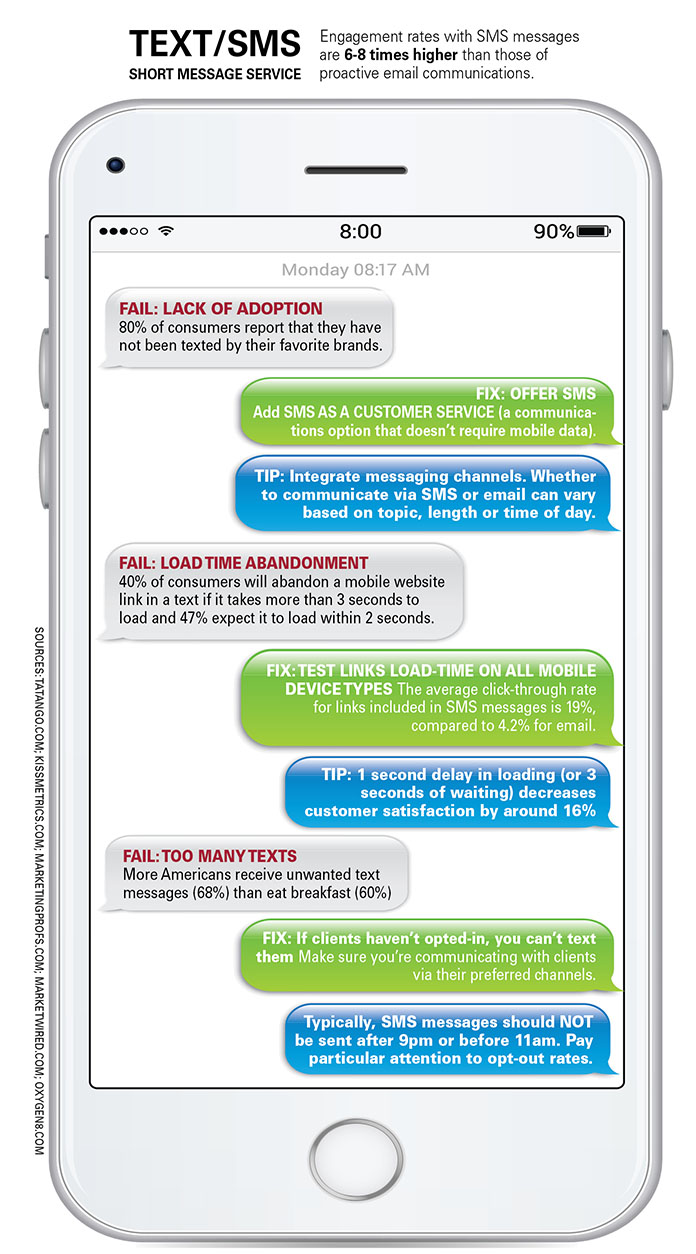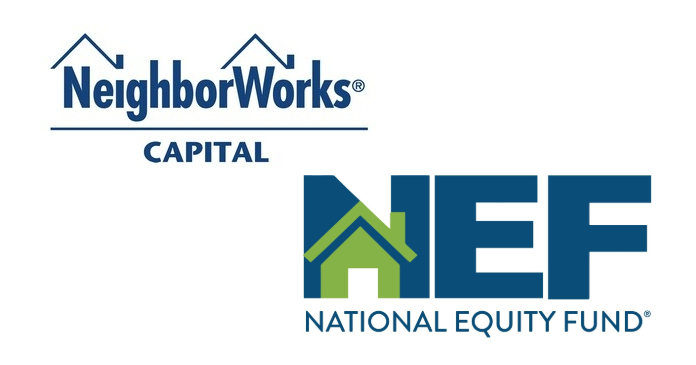The digital natives are getting restless. Armed with tablets and smartphones, raised on apps and connectivity, and coddled by the rich customer experience of major online retailers, today’s apartment prospects want serious answers as to why they should bother living at your community, and they want the answers now.
As if the leasing office wasn’t busy enough already, the near universal adoption of SMS short message service (that’s “text” for the 99.98 percent of us who aren’t computer programmers) provides renters with immediate access to property managers, for better or worse. Extremely effective for fast and simple communication, text is almost addictive in its efficiency and ease of use. It’s not without its pitfalls and can be challenging to successfully manage alongside a leasing desk dashboard already loaded with property management systems, lead management software, CRM platforms, and social media sites.
Nevertheless, consumers have unequivocally migrated to text, and it’s not just millennials letting their thumbs do the talking when it comes to communicating back and forth with businesses. According to a survey of 6,000 consumers conducted by San Francisco, Calif.-based telecom developer Twilio, 89 percent of people would prefer to communicate with businesses via text, but only 48 percent of businesses are set up to connect with customers via messaging. That’s troublesome for multifamily operators already struggling to capture, convert, track, and source-attribute high-value prospect leads.
“I’d definitely say texting is a primary and preferred method of contact for not just Millennials but for all of demographics, even baby boomers,” says Paul Yount, industry principal at Santa Barbara, Calif.-based Yardi Systems. “Everyone texts, and for most people it’s the quickest and easiest way to get their attention and deliver information to them.”
Even as multifamily software architects begin incorporating text functionality into their systems, property managers eager to leverage messaging in marketing and leaseup campaigns say success with text—particularly on the prospect side—takes attention, fine-tuning, and a focus on the details.
Text as a feature
Ashley Pavlovich is the director of marketing for Wellington, Fla.-based Bainbridge Companies, a 70-property owner and fee manager with communities from New York to Florida. She says text will increasingly become a critical conversion tool for associates, particularly as Bainbridge engages in five big lease-ups in 2018.
“The portfolio is the biggest it has ever been. It’s an exciting time and I feel like text has been a big feature for us,” Pavlovich says. “We put community-specific text numbers on our signage as soon as we break ground and can quickly gather a VIP prospect list. At our last lease-up in Florida at Bainbridge Casselberry, we received more than 400 text leads that came in over the course of the year. We feel that’s a very solid result.”
Pavlovich says the recent integration of messaging into Bainbridge’s lead management platform has helped to increase text prospect captures and conversions, and advises property managers to seek solutions that can track all leads in one place, including text. “Our text platform did not always integrate with Lead2Lease, so it had been a manual process to enter text guest cards into the system,” she says. “That’s where text leads can fall off compared to an email or phone call. We want to follow up with every lead coming through, because it’s wasted advertising dollars if we don’t.”
Indeed, data captures by some of the industry’s top technology firms suggest that a comprehensive lead management system that incorporates text and allows for true, two-way SMS conversations can significantly boost conversions from mobile-minded rental applicants.
“By leveraging systems that allow text and social media leads to be directly integrated into a property’s standard lead management processes, there should be no excuse for losing them,” explains Trevor Riley, senior vice president of product for Lehi, Utah-based Entrata, which is currently integrating two-way SMS functionality directly onto its property management platform. “That means leads are automatically captured, and text messages can be sent directly from a lead profile,” Riley says. “Conversations are saved, stored and can be easily shared among the leasing staff.”
Goleta, Calif.-based AppFolio is also offering two-way texting capabilities to capture an inbound request and follow text leads from start to finish. “With AppFolio Property Manager’s text functions, property managers can quickly and easily send a text message right from their dashboard,” says AppFolio Vice President of Product Nat Kunes. “And because a record of every communication is stored means that no lead falls through the cracks.”
Kunes says text leads do tend to convert easier and faster for AppFolio customers who have committed to incorporating text into their lead management arsenal, and Riley indicates that the promised power of text as a prospect conversion tool has significant upshot over social media.
“We know from recently published renters studies that text messaging as a communication preference has jumped from 28 percent in 2011 to over 50 percent in 2017,” Riley says. “By comparison, across our entire customer base, we see only about 1.6 percent of all website traffic is coming in from Facebook, and conversion rates among that traffic are below average, with all other social media sites trailing far behind.”
While Yardi estimates text lead volume to be in the high single digit range as compared to other lead sources, the conversion rate of those texts has the software maker taking notice. “The client data we’ve analyzed shows that prospects that the community has text conversations with convert to leases 130 percent higher than those where texting wasn’t a part of the lead nurturing process,” Yount says. “And prospects who prefer texting during the lease likely prefer text when they become a resident, and are more likely to see and act on a text reminder about rent being due, rent being late, resident functions, etc.”
In the field observations
Kim Morgan is the marketing manager for Oak Brook, Ill.-based JVM Realty Corporation, and says consumer embrace of text as a transactional medium is fueled by the immediacy and brevity of accomplishing otherwise mundane tasks. “We are seeing leads change in relation to search behaviors,” Morgan says. “Consumers want info fast. They want relevant points without the fluff and floral language. So a lot of people do choose to text, and that’s intuitive to us who are millennials. I can’t remember the last time I ordered a pizza by actually talking to someone.”
At the end of 2017, JVM piloted text campaigns at two communities in the Kansas City metro with mixed results. While a suburban property saw nominal uplift, a downtown property exposed to pedestrian traffic was much more successful. What’s more, the company feels text leads are much easier to attribute than nebulous web leads that may have winded through a search engine, an ILS, a PPC ad, or some other so called zero moment of truth.
“We piloted the two text campaigns using chatbots where a person in real time can text with a chatbot and get high level property info and real time pricing,” Morgan says. “It’s been helping us better define what a text lead is and where it can be successful. Between Overland Park and Downtown Kansas City, downtown is performing better in generating leads via text because of walk by traffic, and we believe text is a 100 percent true source of attribution there.”
Follow-up critical to capture
Still, JVM is quick to migrate text leads to a live associate callback ASAP and manages incoming text prospects just like any other lead. “We treat text just like any other guest card,” Morgan says. “It is our preference to call them, not because it is old school or easier, but because you have to maintain the magic, and so much gets lost via text. The challenge with any lead is to make it personal. After initial contact, the prospect can set the tone and their communication preferences from there.”
Pavlovich agrees, adding that while text can be ideal for quick Q&A at the top and bottom of the funnel, it loses much of its mettle when it comes to qualifying and nurturing leads. “As a prospect communication platform, text is good at the very beginning and at the very end,” Pavlovich says. “But when you are getting down to the details of the sale, phone and email enable the leasing associate to answer a lot more questions and provide valuable information to the prospect about the community.”
Leasing agents should also stay current on laws regulating text spam before messaging away to leads and prospects. While many community associates may be familiar with anti-spam rules regulating email outreach, they might not realize that anti-spam text enforcement and related penalties can be even more severe.
“Today’s renters want 24/7 information, and that comes down to technology and process enablement to meet the demand,” says Whit Lanier, senior director of B2B Marketing Products at Norcross, Ga.-based RentPath. “Spam regulations for SMS is much stricter and the penalties are much stronger. If you send an SMS without consent, officials are more aggressive about enforcing penalties and the penalties are steeper. It’s another thing that scares folks away from text and one of the things that has slowed the progress of bringing multifamily solutions to market.”
Responsiveness is still key
Text is also just as susceptible as any other lead channel to engendering ill will when prospect outreach goes unanswered, perhaps even more so given the assumption of immediacy when messaging. “How frustrating is it for you and how does it make you feel about the company you’re reaching out to when you reach out and get no response? Losing or not responding to a lead is worse than not getting that lead in the first place,” Lanier says. “If you’re allowing prospects a way to communicate with you, whether it’s text, social or otherwise you need to be able to respond to that inquiry. If you’re marketing a property and likely paying for leads to be generated then you should obviously not want to lose those leads.”
And despite the promise of text to redefine the landscape of apartment digital marketing and prospect conversion processes, principles on the front lines of multifamily messaging stress two enduring fundamentals to keep things in perspective: realize that technologies are only tools, and make your real estate location count for all it’s worth.
“Ironically, your non-digital leads are still probably the strongest,” Morgan says. “It’s the human condition. You want to live with your friends and so resident referrals are a no brainer. You pass by a cool new development and you like the coffee shop and have already moved yourself in based on curb appeal. At the end of the day, do I want to compete with direct competition jockeying for a spot on a giant list, or do I want to organically do it? I think a lot of property managers are erring toward the later, and realizing within all of these technologies, it’s not the quantity, it is quality.”
“There’s much to be improved upon with utilizing texting, however any business using texting must also have resources to reply effectively, either with a human or an automated rules-based drip campaign or chatbot,” says Becca Wilson, CEO and president of Tulsa, Ok.-based Spherexx. “Personalized responses are best received by residents and prospects and that requires humans.”



![shutterstock_224884621 [Converted]](https://yieldpro.com/wp-content/uploads/2018/04/Message-received-696x365.jpg)













